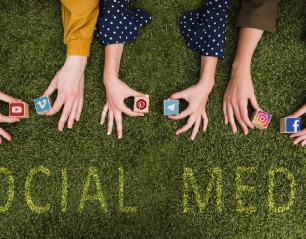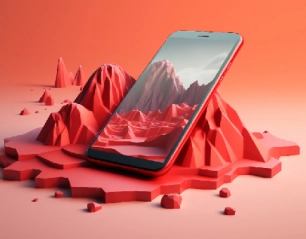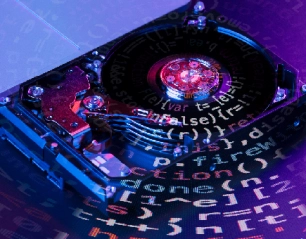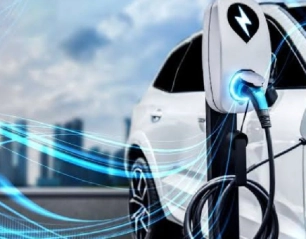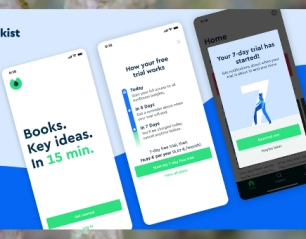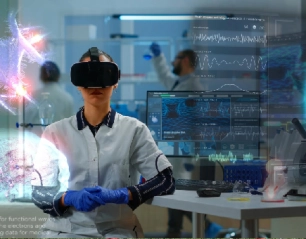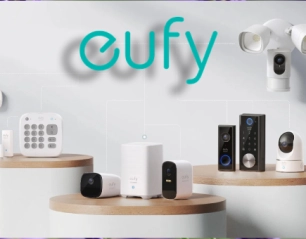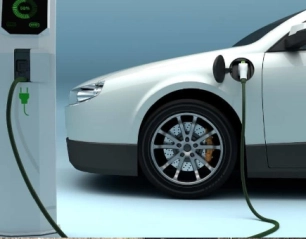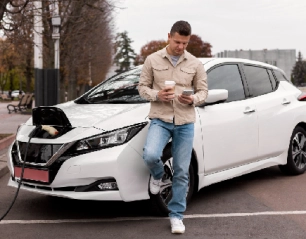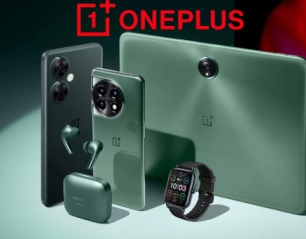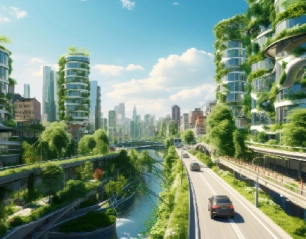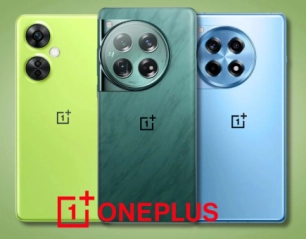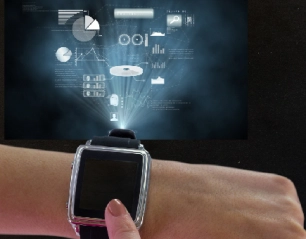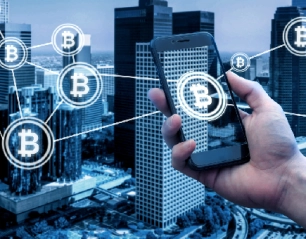The features of the new 5-generation technology are much beyond the prior technologies of wireless communication in terms of speed, connectivity and opportunities that it brings along with it. While 4G made it possible to introduce such popular products as mobile Internet, portable smartphones, and the era of applications, 5G is preparing for a global change in all sectors through the replacement of existing technologies. For downloads, smart cities, smart vehicles and all that, 5G’s are already on the way, and it is going to revolutionize everything. Now, one must ask: what is included in 5G and what is its applicability in the future of connectivity? Therefore, in this article, using the theoretical framework developed by Lin, we analyze the meaning and consequences of the 5G movement in terms of the person and society.
What is 5G?
5G signifies the new wave in terms of overhauling cellular networks after 4G LTE. It provides much higher speed than any previous generation standards, lower latency (or time it takes for the devices to start communicating with each other) support for a very large number of devices at a time, etc. 5G works on a much higher frequency band than all the previous versions which would bring much more bandwidth and faster data transfer. The key features of 5G include:
- Increased Speed: What can be expected from 5G is data rates five times higher than 4G, which could mean a download speed of 10 gbp. What this implies is that a user can download a full high-definition feature movie in a span of a few seconds.
- Lower Latency: The first significant benefit of 5G lies in the latter, as the latency is brought down to a few milliseconds maximum. This is especially important in applications that cannot afford to wait and include self-driving cars and remote surgeries.
- Greater Capacity: The extensive use of IoT devices can be easily managed by 5G, and that too, in one single region without a decline in speed or connection. This is useful in the emerging Internet of Things (IoT) environment where millions of devices share interactions.
How 5G Will Change Your Life
As a result of this, the introduction of the 5G network to our societies is expected to bring about drastic changes in societies and people’s ways of living, even the use of our day-to-day gadgets such as smartphones is not exempted. Here are some key ways 5G will influence individual users:
Mobile Internet and Smooth Streaming
Currently, one of the easiest that will be experienced by consumers is the increase in mobile Internet speeds due to the support of 5G networks. Whether you’re streaming HD videos, downloading, or playing video games online, the 5G will enhance such experiences. Stuttering and delays that presently diminish the experiences of entertainment and communication will be eliminated. , new applications of augmented reality (AR) and virtual reality (VR) will be introduced which will be included in fields such as gaming, virtual tourism and or virtual learning.
Enhanced Smart Homes
5G will also stimulate smart home innovation at a much higher level. That is why it has the potential to make your home smarter by allowing the connections of more devices at once. Agreed, and ordinary home-hub devices will be smarter, enabling different thermostats, security cameras, and appliances as well as lighting systems to work more seamlessly, and home automation systems will become much more stable and easy to use. From your smartphone alone, you’ll be able to control and monitor different aspects of the house and expect real-time response.
A Boost to Mobile Work and Productivity
Covid-19 has changed many people’s working dynamics and for many, the future of remote working is here to stay, therefore, 5G makes working from anywhere possible more feasible and efficient. Fascinating, new possibilities of upload and download rates, high-definition video telephony, and cloud-based tools will make working from home or while traveling at least as efficient as, if not more effective than, working in an office environment. As a result, applications that involve large file interactions or seamless meetings, brainstorming sessions or project management tools will become less latency-prone.
New Gaming Possibilities
The following is a breakdown of ways that gaming will change with the help of 5G technology. A real platform for gaming that provides all kinds of computations required for the game to run over the internet will become more realistic. This means that complex and graphical games, will no longer need costly gaming systems or high-end computers. Rather, users will be able to watch these games live on their Smartphones, tablets, or any other smart devices with almost no delays.
The Larger 5G Applications: Industries and Innovations
Yet the greatest potential of 5G is in industries and further development of technologies there, the advantages are going to be felt by anyone using their device to connect to the internet. In a range of sectors starting from the healthcare sector, 5G will provide opportunities in several essential sectors including transportation and smart cities.
Healthcare and Remote Medicine
On the heels of health care, with the plethora of opportunities it provides, came the most apparent real-life use cases. As 5G provides low latency and fast data transfer remote surgeries and telemedicine will also be more effective and practicable. Even with the fully remote robotic aid, surgeons will perform complicated operations on patients, giving feedback and accuracy in real-time, which can be crucial when a patient needs medical attention but is not physically present.
Further, 5G will facilitate the transfer of gigantic medical files, like MRI scans and recently taken pictures, making a rapid diagnosis of the disease and timely interaction between national and international colleagues without any kind of time-lapse. Wearable health devices will also get smarter: for instance, smartwatches will not only be used to track a patient’s physical activity but technologies will also be used to develop devices that will make it easy to monitor the patient's vitals constantly and relay this information to the healthcare provider almost instantly.
Smart Cities
A smart city is another application of 5G that works as an area with smart devices using sensors and IoT devices to collect data for better management of resources and infrastructure in real time. By adopting 5G, cities will be in a position to offer better traffic control systems hence making better control of traffic jams and improving public transport. Advanced electricity transmission through smart grids integrated through 5G will enhance power consumption efficiency, minimize wastage and enhance sustainability. Also, there is going to be an improvement in public security through installed cameras and quick and efficient networks for security personnel.
Automobiles and Transportations
The function of driving automation depends entirely on having consistent, effective connections between the automotive and its environment, including other vehicles, roads, and people on foot. Attainably low 5G latency is pivotal to allowing the identification capacity of EVs to be sufficient for decision-making and road avoidance or precipitation protection at the right time.
But that is not all that 5G will bring; indeed, with superior connectivity being promised it will be used to enhance such areas as self-driven cars and improved public transport systems capable of responding to traffic patterns and demand in real-time. This could mean more efficient, availability-based transport services, and thus an overall decrease in traffic-generated pollution.
Future of Manufacturing
The manufacturing industry will also be among the prime beneficiaries of the new 5G technology in the market. Industry 4.0 is defined as the automation and data exchange in manufacturing technologies using IoT, AI, & big data 5G capability will support communication of machines to other machines and central management systems to support swift, continuous, predictive maintenance and quality assurance.
Industrial robots will be more integrated, and new sensors will offer precise information able to prevent loss of production time. With the development of automation and precision, there comes a boost to the productivity and innovative power inside the manufacturing process.
Challenges and Considerations
As beautiful as this sounds, the embracing of 5G is not without some hitch. The first one is the structures related to the connection of 5G networks to the Internet and other networks. Previous generations of connectivity utilized lower frequencies because of the superior ability of these signals to travel long distances and penetrate through the walls of buildings. This implies that there is a need for more small cell tower cells and the process of deploying them may be expensive and time-consuming.
However, the same issue raises questions about the protection of 5G networks as more connected devices and personal data will be transmitted within them. Measures to advance good cybersecurity will be required, to avoid risks of break-ins and attacks.
Also, the popular use of 5G may lead to an even deeper digital divide, so rural areas and developing countries cannot support it. Closing this gap will be instrumental in making certain that anyone who desires to reap the benefits of 5G will do so.
Conclusion
5G is a major advance on earlier forms of wireless technology and may well have a profound impact on society and multiple sectors worldwide. 5G will become the main enabler of the next big leap forward for mobile internet speeds, enabling everything from quicker mobile browsing to Smart Cities, self-driving cars, and better health care. Although current obstacles are still apparent concerning infrastructure and security, 5G offers multiple advantages that place 5G at the heart of the connected world and the future. It doesn’t matter if it helps make our day-to-day work, entertainment or the way we interact with the environment, 5G is set to reshape the future of connection.
MUST READ THIS: Biotech Breakthroughs: Engineering Life with Technology
Frequently Asked Questions (FAQs)
5G is the abbreviation of fifth-generation communication technology is faster than 4G, which has lower latency and an increased number of connected devices for real-time services.
It mentioned that the 5G technology will bring higher Internet speed, smoother video playback, enhanced smart home, and higher mobile and online gaming.
New industries like health care, transportation, smart city, and manufacturing will get revolutionized through 5G and their new possibilities like remote surgery or fully automated vehicles.
Was this helpful?













